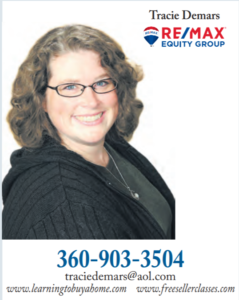What Does It All Mean? Part 3
Posted November 28, 2023 in Real Estate Trends

When I was first licensed almost 19 years ago, we would still have some of the older REALTORS® come into the office with their ‘hot sheets’. These were printed papers of the homes that this agent, or their office, had for sale. In 2005, an average contract for the purchase of a home was 6-8 pages, handwritten on carbon copy paper, wet ink signed by the buyer in person, and faxed off to the seller’s agent. Sometimes, if the seller’s agent didn’t have a fax, we would even present the offer in person, to the seller’s agent and seller. Early on I started teaching home buyer classes as a way to educate the public on the parties involved in real estate, the paperwork and what it meant, the monetary involvement, and the steps to getting keys mainly because these were all items I didn’t understand when I purchased my first home. One thing that was interesting during these early classes was that many people still thought they needed to work directly with the seller’s agent to make an offer on a home.
One of the changes that came about due to the legal complaints of the late 1900’s, regarding agency was the separation of the agency. Before, there was only the real estate agent/REALTOR® who represented the seller, and the sellers REALTOR® represented both parties, or the buyer was representing themselves. Transparency or who is representing who and fairness to all parties involved are vital in real estate. The separation of agency meant we also had representation for the buyers, but again, how was this going to work? REALTORS® work off commission, and knowing how difficult it was (and still is) for many buyers to come up with the funds and monetary involvement required to purchase a home already, adding on another fee was going to limit buyers even further, or prevent them from having the ability to have their own representation which defeated the whole purpose of this. REALTORS® who abide by the Code of Ethics, which ensures that, “consumers are served by requiring REALTORS® to cooperate with each other in furthering clients’ best interests came up with a solution.
When the Homeowners/Sellers decide to sell their home, they still meet with a REALTOR® to talk with him/her about selling their home. This is an interview process. One of the items that the seller should ask about is the commission paid to the seller’s REALTOR® that they could potentially hire. This is a very important distinction. Commission is ALWAYS negotiable, and there is NO set or standard commission percentage or rate. It is very much frowned upon for us to talk about our commission rates. Doing so can get us fined.
REALTORS® are self-employed individuals and we all run our businesses differently. We hang our licenses at a brokerage, but we run our businesses independently within that brokerage. I know REALTORS® who have a tiered commission option, and a seller can choose the commission rate and plan that works best for them. I know REALTORS® who charge more than me and some who charge less than me. One thing that I must emphasize here is that commissions are negotiable and that they are not a set or standard rate or percentage.
When a seller is selling their home, they will want to discuss with the REALTORS® they are interviewing many things: what is the marketing plan for their home, who is their most likely buyer, how is this REALTOR® going to reach the buyer, what comparables are being used to evaluate the market value for their home, what is the commission that this REALTOR® is charging, where/to whom does that commission go, what services does this commission rate include and how will it assist the sellers home in selling, and we haven’t even started on the interview questions that the seller should ask the REALTOR® themselves about their business, practices, ethics, and experience. Again, let me emphasize this word that began our discussion in this series: transparency.
(To be continued in 2 weeks)